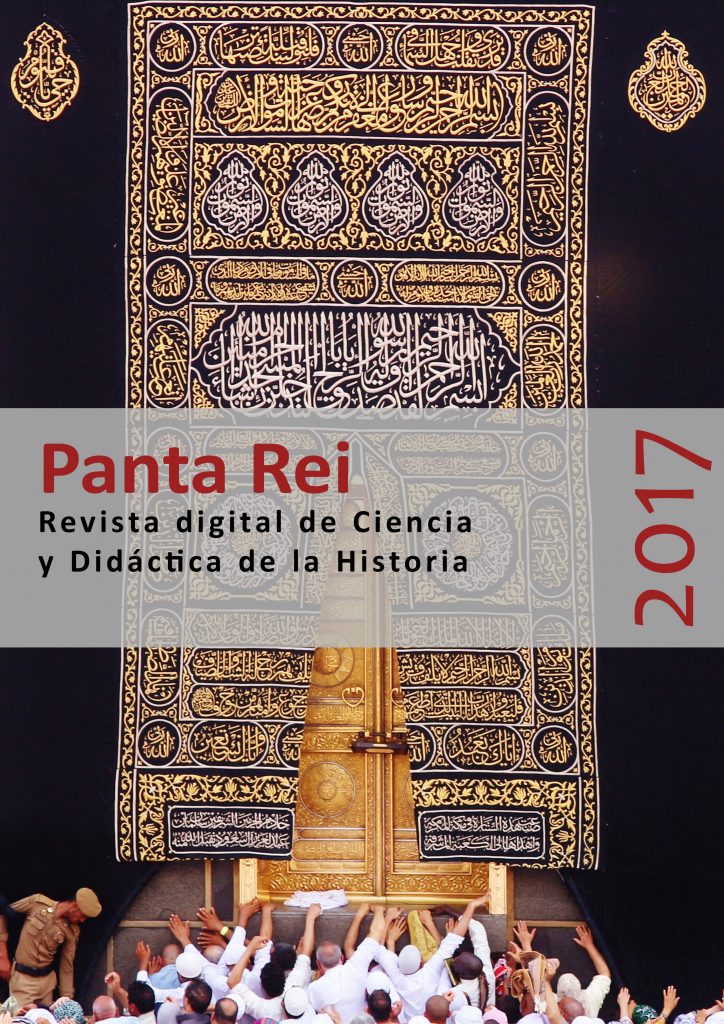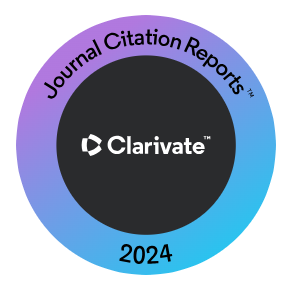Philosophy and paganism at the end of the Western Roman Empire. The case of the consul Messius Phoebus Severus
Abstract
With the acceptance of Christianity as official religion of the Empire, the process of hostility towards the other cults, originated almost a century before at the end of the reign of Constantine, will be strengthened and expanded by the enactment of numerous decrees which soon began to trouble both the practitioners of paganism and those considered heretical among Christians. Although government actions along with the measures of the very Church led to the closure of a growing number of temples and of numerous cults and educational institutions, certain practices and survivals of the Classical world persisted over time and continued to manifest in surprisingly late periods. We will offer here a specific case, that of the collaborator of the emperor Procopius Anthemius, Messius Phoebus Severus, consul in the year 470 despite of his open condition of philosopher and pagan.
Downloads
-
Abstract597
-
PDF (Español (España))258
References
Afonasin, E., Dillon, J. M. y Finamore, J. (eds.) (2012). Iamblichus and the Foundations of Late Platonism. Leiden: Brill.
Alföldi, A. (1979). A Conflict of ideas in the Later Roman Empire. Oxford: Oxford University Press.
Anders, F. (2010). Flavius Ricimer: Macht und Ohnmacht des weströmischen Heermeisters in der zweiten Hälfte des 5. Jahrhunderts (= Europäische Hochschulschriften. Reihe 3: Geschichte und ihre Hilfswissenschaften. Bd. 1077). Frankfurt am Main: Lang.
Bagnall, R. S, Cameron, A. C., Schwartz, S. R. y Worp, K. A. (1987). Consuls of the Later Roman Empire. Atlanta: American Philological Association.
Blumenthal, H. J. (1978). 529 and its sequel: What happened to the Academy? Byzantion, 48 (2), 369-385.
Bravo, G. (2010). Teodosio: último emperador de Roma, primer emperador católico. Madrid: La Esfera de los Libros.
Brody, L. R. y Hoffman, G. L. (2011). Dura-Europos: Crossroads of Antiquity. Boston: Gail L. Hoffman.
Brown, P. (1971). The Rise and Function of the Holy Man in Late Antiquity. Journal of Roman Studies, 66, 73-114.
Brown, P. (1989). El Mundo en la Antigüedad Tardía. De Marco Aurelio a Mahoma. Madrid: Taurus.
Brown, P. (1997). Authority and the Sacred: Aspects of the Christianization of the Roman World. Cabridge: Cambridge University Press.
Busine, A. (ed.) (2015). Religious Practices and Christianization of the Late Antique City (4th – 7th centuries). Leiden: Brill.
Cameron, A. (2010). The Last Pagans of Rome. Oxford: Oxford University Press.
Chastagnol, A. (1966). Le sénat romain sous le règne d’Odoacre. Recherches sur l’Épigraphie du Colisée au Ve siècle. Bonn: R. Habelt.
Chlup, R. (2012). Proclus: An Introduction. Cambridge: Cambridge University Press.
Dzielska, M. (1986). Apollonius of Tyana in Legend and History. Roma: L‘Erma‘ di Bretschneider.
Ernesti, J. (1998). Princeps Christianus und Kaiser aller Römer: Theodosius der Grosse im Lichte zeitgenössischer Quellen. Paderborn: F. Schöningh.
Fernández, G. (1983). Justiniano y la clausura de la escuela de Atenas. Erytheia, 2, 24-30.
Festy, M. (2007). L’Histoire Auguste et les Nicomaques. En Bonamente, G., y Brandt, H. (eds.), Historiae Augustae Colloquium Bambergense (pp. 183-195). Bari: Edipuglia srl.
Fowden, G. (1982). The Pagan Holy Man in Late Antique Society. Journal of Roman Studies, 102, 33-59.
Francis, J. A. (1995). Subversive Virtue: Asceticism and Authority in the Second-Century Pagan World. Pennsylvania: Penn State Press.
Gersh, S. (ed.) (2014). Interpreting Proclus. Cambridge: Cambridge University Press.
Gerson, L. P. (ed.) (1996). The Cambridge Companion to Plotinus. Cambridge: Cambridge University Press.
Gigon, O. (1970). La cultura antigua y el cristianismo. Madrid: Gredos.
González-Blanco, A. (1998). Historia de Murcia en las épocas: Tardorromana, Bizantina y Visigoda. Murcia: Universidad de Murcia (Editum).
Griffin, M. (2014). “Pliable Platonism”? Olympiodorus and the Profession of Philosophy in Sixth Century Alexandria. En Fowler, R. C. (ed.), Plato in the Third Sophistic (pp. 73-100). Berlin: W. de Gruyter.
Grünewald, T. (1992). Der letzte Kampf des Heidentums in Rom? Zur posthumen Rehabilitation des Virius Nicomachus Flavianus. Historia, 41, 462–487.
Gwynn, D. M., Bangert, S. (eds.), 2010. Religious Diversity in Late Antiquity. Leiden: Brill.
Hartke, W. (1940). Geschichte und Politik im spatantiken Rom. Leipzig: Dieterich.
Hartke, W. (1951). Römische Kinderkaiser: eine Strukturanalyse römischen Denkens und Daseins. Berlin: Akademie-Verlag.
Heather, P. (2006). La Caída del Imperio Romano. Barcelona: Planeta.
Hedrick, C. W., Jr. (2000). History and Silence: The Purge and Rehabilitation of Memory in Late Antiquity. Austin: University of Texas Press.
Henning, D. (1999). Periclitans Res Publica. Kaisertum und Eliten in der Krise des Weströmischen Reiches 454/5-493 n. Chr. Stuttgart: Franz Steiner Verlag.
Honoré, T., y Matthews, J. (1989).Virius Nicomachus Flavianus. Konstanz: Universitatsverlag.
Humphries, M. (2007). From Emperor to Pope? Ceremonial, Space and authority at Rome from Constantine to Gregory the Great. En Cooper, K., Hillner, J., (eds.), Religion, Dynasty, and Patronage in Early Christian Rome, 300–900 (p. 43). Cambridge: Cambridge University Press.
Jones, A. H. M. (1970). The Social Background of the Struggle between Paganism and Christianity. En Momigliano, A. (ed.), The Conflict between Paganism and Christianity in the Fourth Century (pp. 17-37). Oxford: Oxford University Press.
Kaster, R. A. (1997). Guardians of Language: The Grammarian and Society in Late Antiquity. Berkeley: University of California Press.
Lee, A. D. (2000). Pagans and Christians in Late Antiquity: A Sourcebook. London: Routledge.
Lee, A. D. (2013). From Rome to Byzantium AD 363 to 565: The Transformation of Ancient Rome. Edinburgh: Edinburgh University Press.
Leppin, H. (2009). Teodosio. Barcelona: Herder.
Liebeschuetz, J. H. W. G. (1979). Continuity and Change in Roman Religion. Oxford: Oxford University Press.
Lieu, S. y Montserrat, D. (eds.), 1996. From Constantine to Julian. Pagan and Byzantine Views: A Source History. London: Psychology Press.
MacGeorge, P. (2002). Late Roman Warlords. Oxford: Oxford University Press.
MacMullen, R. (1981). Paganism in the Roman Empire. New Haven-London: Yale University Press.
MacMullen, R. (1984). Christianizing the Roman Empire (A. D. 100-400). New Haven-London: Yale University Press.
MacMullen, R. (1997). Christianity and Paganism in the Fourth to Eighth Centuries. New Haven- London: Yale University Press.
Martindale, J. R., Morris, J. y Jones, A. H. M. (1987). The Prosopography of the Later Roman Empire vol. II, 395-527 A. D. Cambridge: Cambridge University Press.
Matthews, J. F. (1989). The Roman Empire of Ammianus. Baltimore: Michigan Classical Press.
McCormick, M. (1990). Eternal Victory: Triumphal Rulership in Late Antiquity, Byzantium and the Early Medieval West. Cambridge: Cambridge University Press.
McKenna, S. (1938). Paganism and Pagan Survivals in Spain: Up to the Fall of the Visigothic Kingdom. Washington: Catholic University of America.
Montero, S. (1990). El papa Inocencio I ante las tradiciones religiosas paganas. Antigüedad y Cristianismo, VII, 405-412.
Nicholson, O. (1994). The Pagan Churches of Maximinus Daia and Julian the Apostate. The Journal of Ecclesiastical History, 45, 1-10.
O´Flynn, J. M. (1983). Generalissimos of the Western Roman Empire. Edmonton: Alberta University Press.
O´Meara, D. J. (2003). Platonopolis. Platonic Political Philosophy in Late Antiquity. Oxford: Clarendon Press.
O´Meara, D. J. (1990, 2006). Pythagoras revived: Mathematics and Philosophy in Late Antiquity. Oxford: Clarendon Press.
Ramos, E. A. (2006). De Platón a los neoplatónicos: la escritura y el pensamiento griegos. Madrid: Síntesis.
Rapp, C. (2013). Holy Bishops in Late Antiquity: The Nature of Christian Leadership in an Age of Transition. Berkeley: University of California Press.
Ratti, S. (2007). Nicomaque Flavien senior auteur de l’Histoire Auguste., en Bonamente, G., y Brandt, H. (eds.), Historiae Augustae Colloquium Bambergense (pp. 305-317). Bari: Edipuglia srl.
Rist, J. M. (1967). Plotinus: Road to Reality. Cambridge: Cambridge University Press.
Salzman, M. R. (2002). The Making of a Christian Aristocracy: Social and Religious Change in the Western Roman Empire. Cambridge (Mass.): Harvard University Press.
Salzman, M. R., Sághy, M. y Testa, R. L. (2015). Pagans and Christians in Late Antique Rome: Conflict, Competition, and Coexistence in the Fourth Century. Cambridge: Cambridge University Press.
Sánchez, E (ed.) (1986). Polémica entre cristianos y paganos a través de los textos: problemas existenciales y problemas vivenciales. Madrid: Akal.
Shanzer, D. (2016). Romans, Barbarians, and the Transformation of the Roman World: Cultural Interaction and the Creation of Identity in Late Antiquity. London: Routledge.
Siorvanes, L. (1996). Proclus: Neo-platonic Philosophy and Science. Edinburgh: Edinburgh University Press.
Sundwall, J. (1915). Weströmischen Studien. Berlin.
Testa, R. L., y Santini, C., (eds.) (2014). The Strange Death of Pagan Rome: Reflections on a Historiographical Controversy. Turnhout: Brepols.
Trombley, F. R. (1993). Hellenic Religion and Christianization: c.370-529 (2 vols.). Leiden: Brill.
Vassili, L. (1938). La cultura di Antemio. Athenaeum, 16, 38-45.
Wagner, M. F. (2008). The Enigmatic Reality of Time: Aristotle, Plotinus, and Today. Leiden: Brill.
Watts, E. J. (2004). Justinian, Malalas and the Closing of the Athenian Neoplatonic School in A. D. 529. Journal of Roman Studies, 94, 168-182.
Watts, E. J. (2008). City and School in Late Antique Athens and Alexandria. Berkeley: University of California Press.
Watts, E. J. (2015). The Final Pagan Generation. Berkeley: University of California Press.
Wiemer, H. U. (ed.) (2006). Staatlichkeit und politisches Handeln in der römischen Kaiserzeit. Berlin: W. de Gruyter.
Williams, S. y Friell, G. (1994). Theodosius: The Empire at Bay. London: Routledge.
All the contents published in this journal are subject to an Attribution-ShareAlike 4.0 International (CC BY-SA 4.0) Creative Commons License. You are free to: Share — copy and redistribute the material in any medium or format, Adapt — remix, transform, and build upon the material, for any purpose, even commercially. Under the following terms:
Attribution — You must give appropriate credit, provide a link to the license, and indicate if changes were made. You may do so in any reasonable manner, but not in any way that suggests the licensor endorses you or your use.
ShareAlike — If you remix, transform, or build upon the material, you must distribute your contributions under the same license as the original.
Full text of the license is available in: Creative Commons License 












